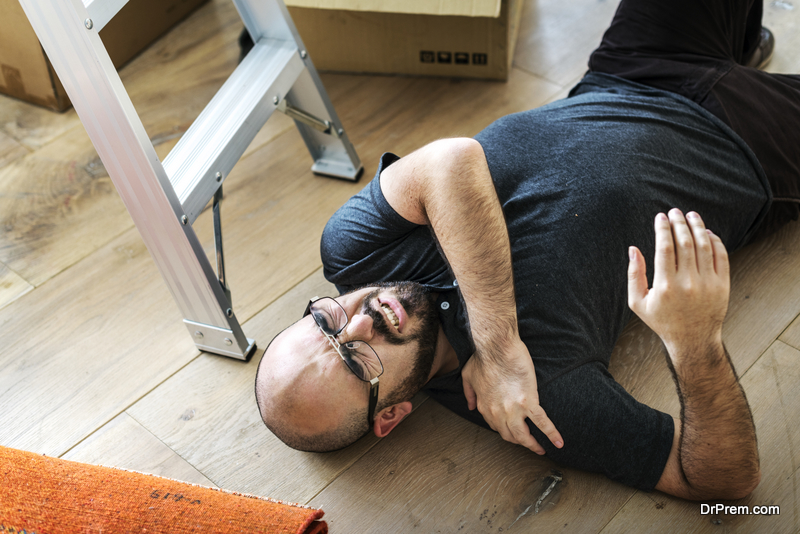Autumn is the most popular season for home repairs and renovations, according to studies conducted among homeowners across the country. DIY home fixer-uppers can save homeowners thousands of dollars on renovations that would cost double the cost when done by a hired professional, however, some projects could be dangerous for the average homeowner. The Health & Safety Institute ensures that employees make safe decisions in the workplace, but few people know how to be safe when doing potentially high-risk projects around their homes. Before beginning a home renovation, you should always do ample research and even contact a professional to ensure that you are capable of doing a particular project on your own.
If it is determined that you are able to take on a home project yourself, here are some tips for keeping yourself, your family, and your home safe during the process.
1. Have Your Home Inspected
Before beginning a major project, it is important to have the current condition of your home evaluated by a professional. Home inspections can help you to determine whether or not certain areas of your home are safe, and can help to identify potential risks or complications that might arise during the process of a home renovation or shortly after.
2. Prepare Your Home
Ensure that your home and your family are safe during renovations by preparing your home in advance. Close air vents and replace filters to avoid dealing with complications from falling debris, use a temporary plastic wall or cover to protect parts of your home from are not actively being worked on, and always wear protective gear when walking through areas of your home that are undergoing renovation (and ensure that your family members do the same).
3. Know When to Ask For Help
While it is true that doing major renovations on your own can save you a great deal of money, some home projects are just too much for the average person to do on their own. Whether a certain job is too dangerous or just too difficult, it is better to ask for professional help and to spend unwanted money than to risk potential damage to your home (or risk injuring yourself), as this could end up costing you more money in the long run due to the costs of fixing errors or even paying medical bills should an incident occur.
Article Submitted By Community Writer




